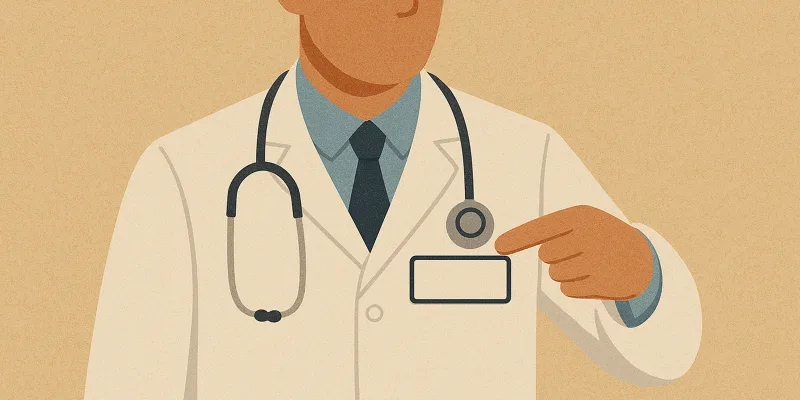Mr. Palz arrived at the trauma bay one night, already intubated and covered in a jumble of wires, cords, infusion lines, and blankets. His head had been swathed in gauze, already soaked through. EMS said self-inflicted gunshot wound, found by his wife at home, still breathing. We performed our rote trauma assessment and unwrapped the head, discovering two wounds, bitemporal, through and through, with a little brain matter poking out where it didn’t belong. The CT confirmed that the beating of the heart and pulmonary function had been spared because of the location of the brainstem, but the rest of the brain that gave life and personality to the man were now a tangle of shredded neurons.
Mr. Palz’s case was selected for mortality and morbidity conference. Traditionally, the presenting physician describes the extent of the failure and what might have been done differently to change the outcome. For some things, like a surgical site infection, a hospital-associated complication, or a bleed requiring reoperation, an error can usually be identified (e.g., an incorrect antiseptic technique, prolonged use of lines and tubes, perhaps a missed injury during a surgical case). For Mr. Palz, the outcome had been decided as soon as he arrived.
So, I looked back further. The last time he had encountered our health care system was for a coronary artery bypass surgery. On a postop visit, he had mentioned that his request for disability had been rejected. The clinician urged him to communicate with his primary care doctor to appeal the rejection, but there was no further mention of his financial situation at the two following primary care visits, both of which had occurred three years ago. There were no recent visits.
I also discovered that Mr. Palz had a psychiatric medication on record at the time of those visits, though it was not mentioned in the primary care documentation. There was no note about the reason he might have been taking it, or who had prescribed it. The medication was not on his list by the time he arrived at the trauma bay.
I will never know the real story, but it’s not hard for me to envision Mr. Palz being put out of work by a major surgery, then denied a surrogate income via disability, and then not having the financial ability to obtain necessary medications or even see a primary care doctor. In fact, the number one reason for bankruptcy in the U.S is medical bills, notwithstanding the fact that many of these patients actually have insurance coverage. And when the cost of care is too high, two-thirds of patients with an existing medical bill or debt problem will opt not to obtain care when they need it.
Mental health takes a backseat to regular medical care for many patients, and “non-use” of mental health care is often due to cost barriers. Cost barriers are not limited to the absence of or inadequate public health insurance; there is also a concerning rise in cost barriers specifically among patients with private insurance for mental health care.
What does this mean for physicians, who are sometimes patients themselves? Physician burnout is on the rise, but solutions and interventions are not clear. The ongoing pandemic has only exacerbated the situation. Physician suicide remains a huge concern, with an estimated 300 physician deaths a year. Common reasons cited for physician avoidance of mental health care include stigma, lack of time, and potential repercussions from licensing bodies.
In physician populations, cost barriers seem to be less of an issue — but most physician salaries fall into the top three tax brackets. This is not the case for resident physicians. Average resident salaries fall into the penultimate or antepenultimate tax brackets. As the sole breadwinner of my household, my resident salary of $62,000 a year offers little in the way of discretionary funds. Like most of my colleagues who would prefer to keep as much of their paycheck as possible while carrying the burden of student loans, I opted for the lowest cost insurance provided by the hospital. The end result? A $4,000 deductible, which is mostly meaningless if I’m otherwise young and healthy. At least, it was, until I miscarried this year. Rounds of doctor visits, ultrasounds, lab tests, and a mandate to see psychiatry put a solid dent in my health savings account. I benefited enormously from regular counseling, but at the cost of $250 every visit. If I had not had the luxury and the foresight to contribute to a health savings account, I would have been short $1,500 in mental health care costs alone by the end of this year. I hesitate to share this information with my co-residents, who are clearly suffering from burnout and depression because I worry the price tag alone will keep them from seeking care.
So, for Mr. Palz, the extent of failure falls on our entire society and on the health care system. Mental health care is both stigmatized and undervalued as critical “medical care,” and our best health insurance options fail to defray the costs. And while physicians and residents suffering from depression and burnout have similar professional reasons for avoiding mental health care, the question of cost affects our residents as much as our patients.
Have you experienced — either firsthand or secondhand — barriers to mental health care during your medical training? Share your experience in the comments!
All names and identifying information have been modified to protect patient privacy.
Scarlett Hao is a PGY-4 resident in general surgery at East Carolina University / Vidant Medical Center. She graduated from the University of Maryland School of Medicine. She is pursuing a career in academic medicine and surgical oncology. Scarlett is a 2020–2021 Doximity Op-Med Fellow.
Illustration by April Brust







